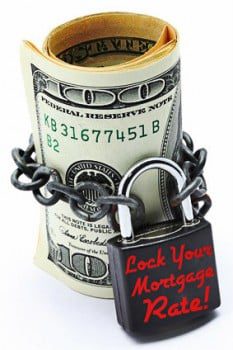Mortgage Mistakes to Avoid When Buying a Home
 A mortgage is one of the most significant financial responsibilities you’ll acquire. Despite this, there are still some major mortgage mistakes many people make every day.
A mortgage is one of the most significant financial responsibilities you’ll acquire. Despite this, there are still some major mortgage mistakes many people make every day.
To buy a house, you should do your best to avoid these pitfalls.
Your mortgage will be with you for probably the next ten to thirty years and requires a significant investment of time to negotiate appropriately.
Understanding how to get a mortgage will be a significant factor in avoiding problems.
Let’s examine the issues that many home buyers unknowingly get themselves into.
With this knowledge, you can avoid making these same mistakes when getting a mortgage.
1. Check Your Credit First
You should always check your credit before you pursue a home. Not checking your credit is a mortgage mistake many home buyers can easily avoid but don’t!
You may have issues with your credit that you didn’t expect, such as judgments in another state or late payments on accounts you forgot about.
If you check your credit early on, you’ll avoid nasty surprises. Some issues with your credit will be able to be resolved before you begin applying for your mortgage loan.
Your goal should be a good credit score to ensure the mortgage lender provides the best loan terms.
You can pull your credit for free from the three major credit agencies once a year.
Remember that credit mistakes on your report can affect your score, ultimately affecting the rate you can negotiate with your lender. Credit mistakes can stop you from getting the best mortgage rate.
While there is a minimum credit score to buy a house, your focus should be improving your scores for the best terms.
2. Don’t Apply for Any New Credit
 One of the biggest mortgage mistakes when buying a home is taking on new debts.
One of the biggest mortgage mistakes when buying a home is taking on new debts.
I have seen a few closings get delayed because borrowers make a large purchase like a car before closing!
Applying for new credit can have a dramatic effect on your debt load and your credit score. If you make a significant purchase, your mortgage loan could fall through in the final stages.
Many prospective homeowners believe their loan has already been guaranteed and will go through before the new credit hits their reports.
However, delays can occur, and your lender will check your credit report before final approval.
Even a single extra credit check on your report could affect your score enough to change your interest rate, even if it doesn’t open a new line of credit.
A couple of years ago, while selling a home in Ashland, Massachusetts, one of the buyers decided to purchase a car during the transaction and failed to tell their lender. The result was the closing was delayed.
While all was not lost, it could have been if this issue was not cleared up quickly. Loans can be denied after approval is given.
The mortgage industry has changed drastically over the last decade. Lenders are now far more cautious about who they give loans. The lender will be exhaustive when evaluating a new borrower. Don’t underestimate the scrutiny you will be under throughout the process.
Making a significant purchase is probably the most common mortgage mistake during home buying.
3. Don’t Underestimate Your Housing Payment
Your housing payment doesn’t just consist of your mortgage payment. Once you purchase your home, you’ll have to acquire homeowners insurance, pay property taxes and, if you are part of a homeowner’s association, pay their associated fees.
You must consider these incidentals and the repairs and maintenance you must do in your new home.
If you have been renting, you may not have needed to pay gas or water bills before. Regardless of the amount your bank approves you, you should carefully review your income and expenses to determine how much you can genuinely afford.
Many homeowners don’t allocate enough for those expenses that happen to “pop up” from time to time out of the blue. Most first-time home buyers don’t realize all the other costs when purchasing a home. If careless, you could easily find yourself in a poor house without budgeting correctly!
4. Don’t Make Any Large Deposits
 Before starting the mortgage loan process, you should have all the funds you need to purchase your home. Any large deposits that you make will need to be tracked.
Before starting the mortgage loan process, you should have all the funds you need to purchase your home. Any large deposits that you make will need to be tracked.
Tracking by the mortgage company ensures you do not receive money from other sources, such as private family loans or gifts.
Making large deposits is a common mortgage mistake that should be easy to avoid as long as you know it will create issues. Unfortunately, many buyers are not counseled well enough.
Mortgage lenders must be assured that all your money towards your home (with some minor exceptions) comes from you and no one else. Remember, lenders will scrutinize almost everything you do during the loan process!
5. Stay In Your Current Job
Even if you’re moving to a position with a higher pay rate, changing jobs while receiving a mortgage loan is seldom a good idea.
Instead, ask your prospective employer if you can start after your closing date. Changing jobs can complicate the entire process, as your mortgage lender will need to reevaluate the stability of your position.
Moving to another employer ranks right up there as one of the issues that will create problems with a mortgage while trying to buy a home.
6. Always Get a Pre-Approval
A mortgage pre-approval is imperative because it gives you a guideline on what you can spend on a home and will reveal any potential issues that could prevent you from getting a home.
You need to understand that pre-qualification letters are not the same as pre-approval. There is a vast difference between being pre-qualified and pre-approved for a mortgage.
A pre-qualification does not look at all of the aspects a pre-approval does and may not be as accurate. Most of the time, when you get pre-approval, the lender will verify your credit and employment.
When these steps are taken, a seller will feel better about your ability to purchase their home.
Most pre-qualification letters are not worth the paper they are written on as nothing has been verified. A hidden benefit to acquiring a pre-approval is that it will help you get your financial documentation in advance.
Not getting pre-approved is a relatively substantial mistake that could cost you the opportunity to earn your dream home if other buyers simultaneously make an offer.
Working as a real estate agent for the last thirty-seven years, I know not getting pre-approved is a common mortgage mistake home buyers make just starting their search.
For some reason, many careless Realtors do not take the time to review their buyer’s mortgage letter to ensure it is a pre-approval and not a pre-qualification!
7. Always Shop Around For Your Mortgage
 Choosing a lender is an essential piece of the puzzle when getting a home loan.
Choosing a lender is an essential piece of the puzzle when getting a home loan.
Some home buyers underestimate the difference a fraction of a percent can make on their mortgage loan interest. It would be best to shop around to find the most favorable terms possible with your mortgage loan.
To simplify the process, you can assemble a packet with all the information your first mortgage lender requested regarding your pre-approval.
You can then forward this packet of assembled information to multiple mortgage lenders for a quote on their rates and terms.
Throughout this process, you may want to inquire with both national and local lenders, as you can’t always predict which lenders will be able to give the most optimal rates.
There are many first-time buyer mortgage programs to choose from.
When comparing mortgage programs, you are doing it apples to apples. Points, closing costs, and other fees can dramatically impact the overall cost of your loan.
While one lender may have a cheaper rate, you may not get the best deal if the rest of the costs are sky-high.
8. Keep Your Mortgage Simple
Many exotic loan packages are available but come with complications or catches. Keeping your mortgage simple is usually your best bet.
When you introduce other types of mortgage loans, you end up with more restrictions and a higher possibility of failure.
Conventional mortgage packages and standard alternative loans such as FHA loans are usually all an individual should need.
If you purchase a fixer-upper, an FHA 203k rehab loan could be the perfect solution.
If you are a veteran or are purchasing in a rural area, you may want to go with a VA or USDA loan which offers no down payment options.
Your mortgage professional should discuss your personal financial needs with you.
9. Understand There Could Be Private Mortgage Insurance
One of the expenses many first-time home buyers don’t realize is private mortgage insurance. PMI is an expense you’ll pay when you get a mortgage with a down payment that’s less than 20 percent.
It protects the lender in the event you default on your mortgage. It is a relatively expensive fee as it does nothing for you and everything for the mortgage lender.
Eliminating PMI should be one of your first goals in homeownership. Some borrowers will look to avoid PMI altogether if it makes financial sense.
10. Always Read Your Mortgage Documents
Mistakes can happen. While your real estate agent will do their best to protect you during the property purchase, what occurs with your mortgage loan will usually be entirely between you and your lender.
IA mortgage lender can have inclusions within a loan that you hadn’t noticed or hadn’t been adequately discussed and explained to you.
When you go to your bank to sign your documents, you should carefully read each page and not be afraid to ask your lender questions.
The mortgage terminology used in loans can be confusing and unique, and you aren’t expected to understand everything immediately. Don’t make this careless mortgage mistake!
11. Always Lock In Your Mortgage Rate
 Mortgage rates fluctuate on a daily level. If you don’t lock in your mortgage rate, it’s possible that you could be in for a surprise once you finalize your loan. If your mortgage loan takes an unusually long to close, this difference could be relatively significant.
Mortgage rates fluctuate on a daily level. If you don’t lock in your mortgage rate, it’s possible that you could be in for a surprise once you finalize your loan. If your mortgage loan takes an unusually long to close, this difference could be relatively significant.
This is particularly the case when mortgage rates are rising quickly.
Mortgage loan rates are usually locked for a particular period, but you can extend the lock on your mortgage rate if your transaction takes a while to close.
Final Thoughts on Mortgage Mistakes
While getting a mortgage loan may seem intimidating at first, it is a process that hundreds of people go through every day. Mortgage problems are less commonplace when borrowers stay on top of their finances.
You should be okay if you are careful and do the appropriate research. The most important thing to remember is to be knowledgeable about your financial situation, not make any significant economic changes throughout the process, and educate yourself about your financial options.
Keeping all the above mortgage mistakes to avoid in mind will prepare you for a smooth real estate transaction and, hopefully, years of enjoyment in your new place.
With careful planning, you can avoid the most common mortgage mistakes. It’s all about getting yourself educated on the entire financing process.
About the author: Bill Gassett, a nationally recognized leader in his field, provided the above Real Estate information on mortgage mistakes to avoid. Bill can be reached via email at billgassett@remaxexec.com or by phone at 508-625-0191. Bill has helped people move in and out of Metrowest towns for the last 37+ Years.
Are you thinking of selling your home? I am passionate about Real Estate and love sharing my marketing expertise!
I service Real Estate sales in the following Metrowest MA towns: Ashland, Bellingham, Douglas, Framingham, Franklin, Grafton, Holliston, Hopkinton, Hopedale, Medway, Mendon, Milford, Millbury, Millville, Natick, Northborough, Northbridge, Shrewsbury, Southborough, Sutton, Wayland, Westborough, Whitinsville, Worcester, Upton, and Uxbridge MA.

